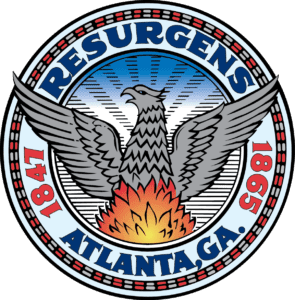Permits and Planning

As Atlanta’s very first Landmark District, Cabbagetown has protections in place to prevent construction from adversely affecting the historic architecture of the neighborhood. The Cabbagetown Landmark District Guidelines provide both guidance to developers and a means for residents to participate when proposals are being made to modify an existing home or to build a new structure.
Cabbagetown also has a Historic Preservation and Land Use Committee (HPLU) – comprised of volunteers from the neighborhood – which meets monthly with developers, architects, and property owners to discuss best practices when doing work in the neighborhood. These discussions help prepare a proposal before it goes before Atlanta’s Historic Preservation Studio Staff (HP Studio Staff) and/or the Atlanta Urban Design Commission (AUDC), which are the City’s arbiters overseeing all construction in historic communities.
Once a proposal reaches the city government, it goes through various steps for approval or denial, after which a determination is handed down to the applicant. These decisions are then made public. If a person wishes to see these results – including the types of permits pulled for an approved site plan – the process can be a tad challenging, since Atlanta currently has no aggregator that allows for quick and easy access to all the decisions that have been made.
The Patch Works hopes that the following links might expedite researching site plans (and other pertinent documents) that have gone in front of the HP Studio Staff or the AUDC. Importantly, in order to adequately oversee compliance during construction work, the City of Atlanta depends almost entirely on a complaint system driven by concerned residents. Communities absolutely need to stay vigilant. If any question were to arise as to the validity of construction work, PLEASE contact the Office of Inspections & Code Enforcement. While policing neighbors is far from optimal, it’s currently the most effective recourse for providing a speedy remedy to a potentially destructive action.
The City of Atlanta Department of City Planning (Home Page)
The City of Atlanta Department of City Planning Online Applications and Permitting
The City of Atlanta Department of City Planning Accela System (With a Building Permit Tracker)
AUDC Meeting Agendae, HP Studio Staff Reports, and Meeting Results
Videos of AUDC Meetings (Incomplete)
The City of Atlanta Department of City Planning Geographic Information System (GIS) (Home Page)
GIS Building Permit Tracker (Quick Link)
GIS Historic Preservation Application Tracker (Quick Link)
The City of Atlanta Office of Inspections & Code Enforcement (Complaints Submissions)
In addition, the City of Atlanta is making it easier to research the history of rezoning requests, as well as track where Short-Term Rentals have legally been provided permits. According to The City of Atlanta Short-Term Rental Ordinance, Ordinance No. 20-O-1656 (effective as of March 1, 2022), all Short-Term Rentals MUST obtain permits in order to be legal. Again, only through residential oversight can City of Atlanta officials be notified of illegal activity.
Short-Term Rental Rules: Ordinance No. 20-O-1656
GIS Short-Term Rental Tracker (Quick Link)
GIS Rezoning Cases (Quick Link)
In the event that a person might wish to view records that are not readily available online, the City of Atlanta provides request forms.
For assistance with any complaints or research into the above topics, please do not hesitate to contact The Patch Works!
